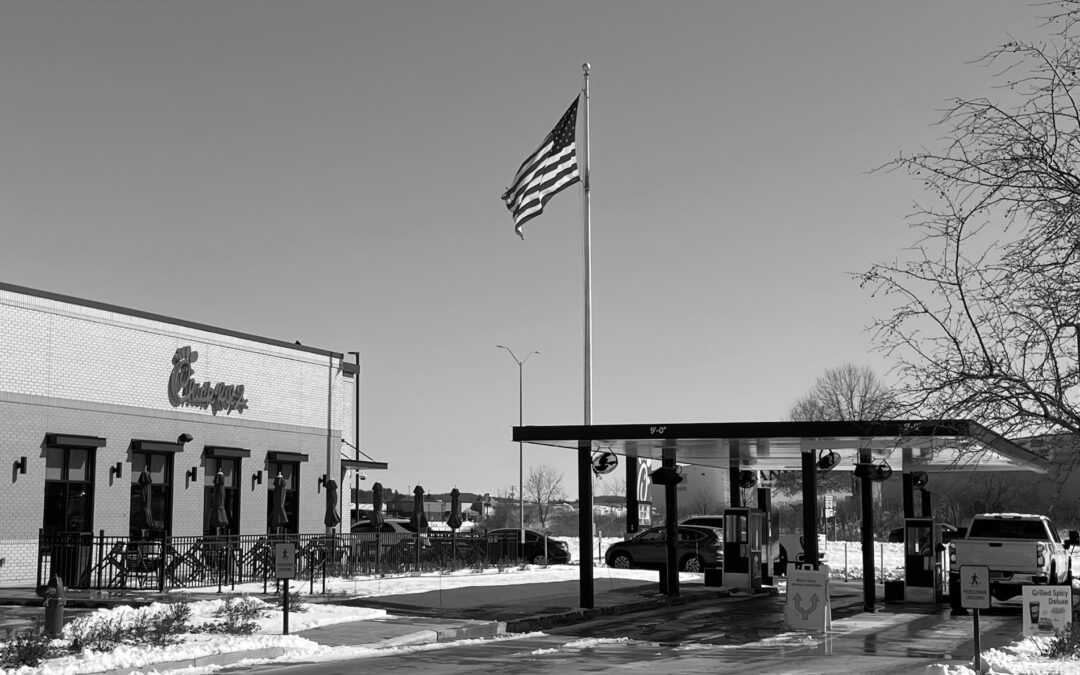We often tout efficiency as the pinnacle guiding principle on the way toward continued human achievement—almost like it’s the only metric that matters. Yes, it can be important, but what about pleasure?
It’s, of course, not a binary situation—efficiency or pleasure—but skewing all efforts toward efficiency might have unwanted consequences. For instance, if we’re talking about employment, making things ambivalent, uniform, and controllable would most likely increase efficiency. I mean, just look at this article on Chick-fil-A—fantastic, right?! But at what cost does that come? Great for investors’ vacation home plans, but great for the experience of being a well-functioning human?
And while efficiency may not be inherently unpleasant, there continues to be no similar priority placed on pleasure, in work tasks or work settings.
The absurd slippery slope here is that uber-efficiency will most likely lead to no employees/customers (at a certain point, the discomfort will be enough for the employee or customer to leave), therefore resulting in no further need to be concerned about efficiency. The counter to this is that employment/customer spots can always be filled by “new” bodies and that a continual turnover model is sustainable. Have more kids, right? But is this ultimately efficient? I’m not an economist—I don’t know—but I’m skeptical. I do know it’s not pleasurable.
I would argue a similar single-focus on efficiency exists in much of our personal lives—to our own detriment.
As individuals, we seem to be constantly seeking new, improved ways to afford ourselves more efficient schedules. To what end? Oh yeah, I’m sure with all that extra time, you have started that novel spinning around in your head. I’ve heard it described that even if we generate more “time” for ourselves, it’s time-confetti—meaning small, sporadically spaced moments of time, which we gladly fill by posting photos of our desserts and scrolling through the better desserts of others.
Importantly, on an individual experiential level, pleasure matters, and that’s the realm in which I work.
Many great thinkers have posited that pleasure is one of the most basic human characteristics, motivations, desires, etc.—that it is intrinsic (and therefore unavoidable) to us.
We seek to increase pleasure and avoid pain. If this is the case, then it would be dumb to not have it matter when deciding on processes, environments, etc.
Consider: does using that fancy automated curtain opener linked to your smart light bulbs to attain the perfect ambient lighting—all by moving your index finger over the ever-present, screen-protected phone—afford you more pleasure and less pain?
On a bright note, THANKFULLY, the onslaught of “life hacks” seems to have taken a little break. But now we have Ozempic, so I may be too optimistic.
It’s not ALL about efficiency. And it’s not ALL about pleasure. It’s about discernment and recognizing the appropriate priority needed for both.
To add a bit more depth here, I’ll further posit that we’re morally confused when it comes to prioritizing efficiency. We say that efficiency is “good.” Good is a moral determination. It ignores the foundational question: good for what? For efficiency? Yes. For creating more dollars? Sure. For our mental well-being? Probably not. For our sense of personhood? Nope. In ignoring this question, we end up shortcutting to the belief that efficiency is the only good—and that’s bad.

